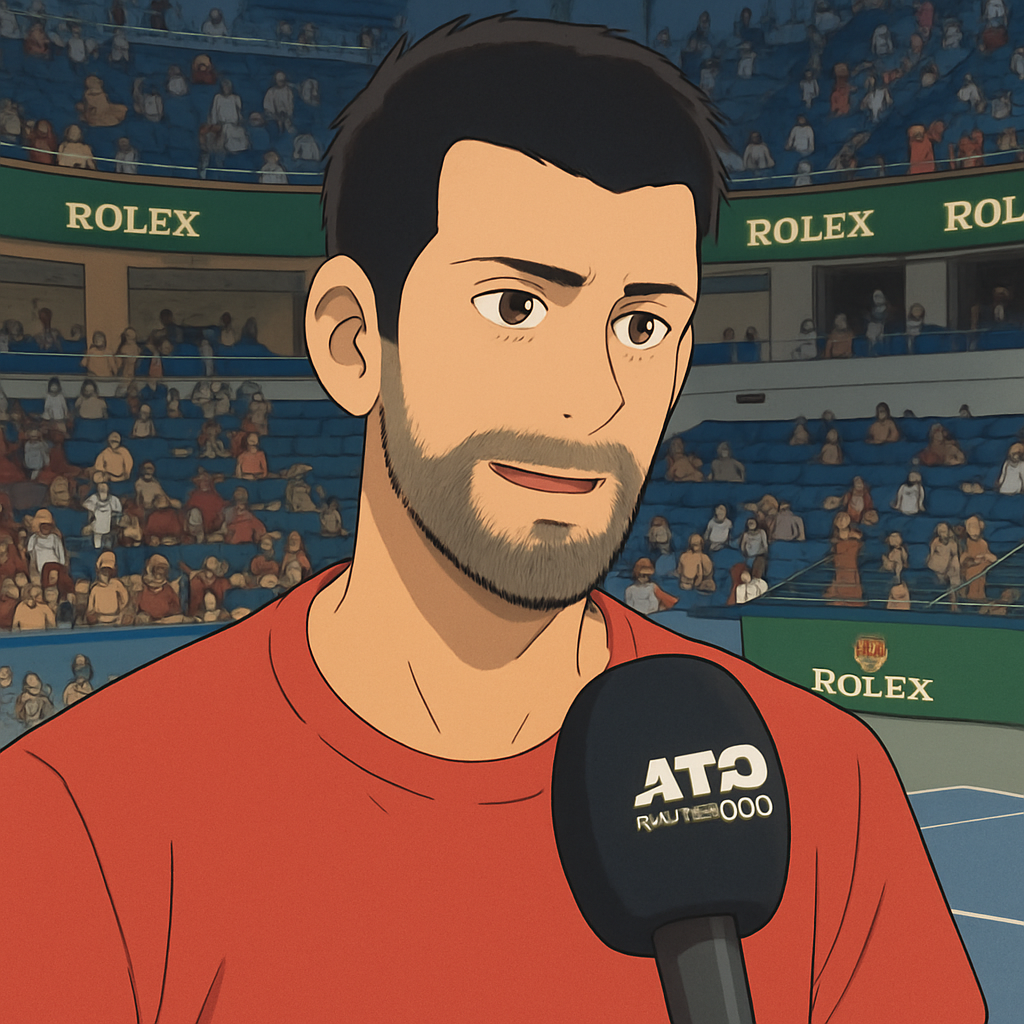SHANGHAI — Novak Djokovic, the world's top-ranked player, secured a hard-fought 6-3, 7-5 victory over Belgian qualifier Zizou Bergs in the second round of the Shanghai Masters on Thursday. While the win advanced him to the third round, it was his post-match comments that captured the most attention, as the 24-time Grand Slam champion issued a surprisingly candid and concerning assessment of his current physical state.
Djokovic, who is playing his first tournament since losing the Davis Cup singles rubber to Jannik Sinner in late September, looked sharp in stretches but was visibly struggling with his movement and serve throughout the match. The victory, while expected, was far from the dominant performance fans have come to expect from the Serbian legend on hard courts.
A Concerning Admission on Court
In his on-court interview following the match, Djokovic did not mince words. When asked about his performance and how he was feeling, he delivered a statement that sent a ripple of concern through the tennis world. "The way I felt on the court today, it's a bit concerning," Djokovic stated bluntly.
He elaborated on the specific issues that plagued him during the match, pointing to a clear lack of match sharpness and an underlying physical problem. "I was struggling a lot with my serve, my movement. I was never really in a good rhythm. I was missing a lot of balls from the back of the court."
This level of public self-critique is rare for Djokovic, who is known for his mental fortitude and ability to find solutions even on his off days. For him to openly admit to such fundamental struggles suggests the issues are more than just rust from a brief competitive layoff. He specifically highlighted his serve, a weapon that has been a cornerstone of his success, as a major point of concern.
The Specifics of the Struggle
Breaking down the match statistics reveals the truth behind Djokovic's worries. While he managed to secure the straight-sets win, the performance was riddled with uncharacteristic errors and vulnerabilities that a higher-ranked opponent would have likely punished.
Key areas where Djokovic faltered included:
- First Serve Percentage: It dipped to a low 54%.
- Unforced Errors: He committed a surprising 34 unforced errors.
- Break Points Faced: He was broken twice by the World No. 121.
- Movement: He appeared heavy-legged and slow to react at times.
Djokovic acknowledged the statistical reality, stating, "The statistics say it all. A lot of double faults, a lot of unforced errors. Just a very low percentage of first serves in. If I want to have a chance to go deep in this tournament, I have to play at least 30, 40% better."
A Deeper Look: Fatigue or Injury?
The immediate question on every observer's mind is the root cause of this dip in form. At 36 years old, the physical toll of a long season and a historic career is a constant factor. Djokovic has managed his schedule meticulously in recent years, but the cumulative effort may be catching up. He hinted at a specific physical issue, though he stopped short of providing a detailed diagnosis.
"I have some issues with my body," he revealed, "and I hope that I'll be able to get myself in a better state for the next match. It's going to be a quick turnaround."
This admission is particularly worrying with the ATP Finals in Turin and the Davis Cup Finals looming at the end of the season—two major objectives for the Serbian. Any significant injury at this stage could jeopardize his chances of finishing the year as World No. 1 and leading his country to another Davis Cup title.
The Road Ahead in Shanghai
Djokovic's immediate challenge is a third-round encounter with Croatian talent Marin Cilic or a qualifier. While on paper these are manageable matches, his current physical state makes any contest a potential pitfall. The Serbian emphasized the need for rapid improvement, acknowledging the quality of the field in Shanghai.
"Every match is a new challenge," he said. "The next opponent, it doesn't get easier. Everyone here is a top player and if you don't feel well on the court, you can lose to anyone."
The Shanghai Masters is a crucial ATP 1000 event, and a deep run is vital for Djokovic in his battle with Carlos Alcaraz for the year-end No. 1 ranking. A premature exit, especially due to physical limitations, would hand a significant advantage to his young Spanish rival.
A Wake-Up Call for the Tennis World
While a single subpar performance from a champion of Djokovic's caliber is not typically cause for alarm, the nature of his comments has shifted the narrative. This wasn't a case of simply being outplayed; it was a champion openly questioning his own physical capacity to compete at the highest level.
His words serve as a stark reminder that even the greatest athletes are not immune to the effects of time and physical strain. The tennis world, which has grown accustomed to Djokovic's seemingly invincible aura, is now holding its breath.
The coming days in Shanghai will be telling. Can Djokovic recover, adjust his game, and find a way to win even without his best stuff, as he has done so many times before? Or has the sport finally witnessed a genuine crack in the armor of its most dominant player? His final statement on the matter was a mix of concern and determination: "I have to be honest with myself and my team, and we have to work on it."
For his rivals, this worrying statement is a potential signal of an opening. For his fans, it is a cause for apprehension. For Novak Djokovic, it is the latest and perhaps one of his most significant challenges in a career defined by overcoming them. All eyes will be on his next match to see if this was merely a blip or the beginning of a more profound struggle.

